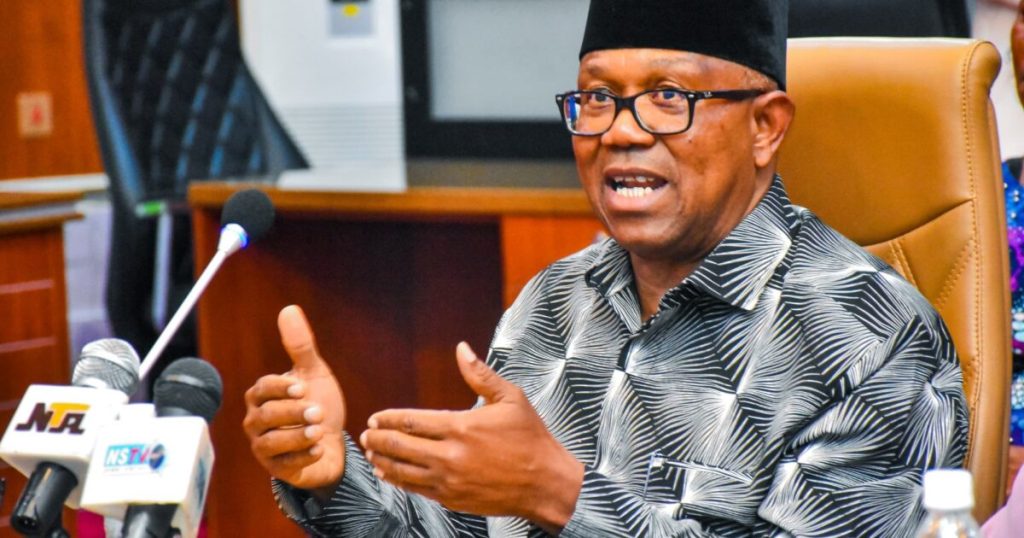The escalating violence across Nigeria has reached a critical juncture, transforming into a national tragedy that demands immediate and decisive action. Former presidential candidate Peter Obi has voiced grave concerns over the alarming frequency of killings and attacks, emphasizing the tragic devaluation of human life that has resulted from the relentless bloodshed. The sheer number of incidents occurring daily has desensitized the nation to the devastating loss of life, with news of deaths becoming almost commonplace. This erosion of the sanctity of life underscores the urgent need for a comprehensive national security strategy that prioritizes the protection of citizens and addresses the root causes of violence. The pervasiveness of these attacks, spanning across various states, paints a bleak picture of a nation grappling with a severe security crisis.
The scope and diversity of the recent attacks highlight the multifaceted nature of the security challenges facing Nigeria. From bomb explosions in Kano, claiming the lives of at least five people and injuring many more, to the massacre of wedding guests in Plateau State, where 12 individuals were killed and 11 injured, the violence manifests in various forms. Banditry continues to plague communities, as evidenced by the tragic loss of 30 lives in Kebbi State following a brutal attack. Even Borno State, a region grappling with long-standing insurgency, witnessed further tragedy with a female suicide bomber killing 24 citizens. The killing of a police inspector in Katsina State further underscores the vulnerability of law enforcement personnel and the widespread reach of criminal elements. These incidents, occurring within a mere 24-hour period, underscore the urgency of the situation and the need for a coordinated and effective response.
The escalating violence isn’t confined to traditionally volatile regions; it has begun to permeate areas once considered peaceful, raising concerns about the potential for further destabilization. This expansion of insecurity necessitates a reassessment of existing security strategies and a renewed commitment to addressing the underlying factors fueling the violence. Obi’s call for insecurity to be treated as a top national priority reflects the growing consensus that this issue demands urgent attention and a concerted effort from all stakeholders. Viewing criticisms of the government’s security efforts as constructive feedback, rather than opposition, is crucial for developing effective solutions. The nation’s leaders must acknowledge the gravity of the situation and demonstrate a genuine commitment to protecting the lives and livelihoods of their citizens.
The apparent lack of empathy from leaders towards grieving Nigerians adds another layer of complexity to the crisis. Obi’s criticism highlights the disconnect between the political elite and the suffering of the population. The absence of visible displays of empathy and concrete actions to address the root causes of violence further erodes public trust and fuels a sense of abandonment among those affected by the escalating insecurity. The government’s response must go beyond mere rhetoric and translate into tangible actions that demonstrate a commitment to protecting its citizens. This includes providing adequate support to victims and their families, strengthening law enforcement agencies, and addressing the underlying socio-economic factors that contribute to violence.
Beyond the immediate human cost, the persistent insecurity, coupled with rampant corruption, poses a significant threat to Nigeria’s international reputation. The world is watching as violence and corruption continue to plague the nation, undermining its image on the global stage. Obi warns that this ongoing insecurity and unchecked corruption represent a significant “demarketing” of the country, potentially deterring investment and hindering economic growth. Addressing these issues is not only crucial for the safety and well-being of Nigerians but also for the country’s standing in the international community.
The call to action is clear: all stakeholders, from government officials to community leaders and citizens, must unite in a collective effort to address the root causes of violence and restore peace and security. This requires a comprehensive approach that encompasses security sector reforms, socio-economic development initiatives, and efforts to promote reconciliation and peaceful coexistence. The urgency of the situation demands immediate and decisive action to prevent further loss of life and ensure a more secure future for all Nigerians. The future of Nigeria hinges on the ability of its leaders and citizens to address this crisis with the seriousness and commitment it deserves. The time for action is now, not only to save lives but also to preserve the integrity and future of the nation. The people of Nigeria deserve to live in peace and security, and it is the responsibility of those in power to ensure that this fundamental right is protected.


